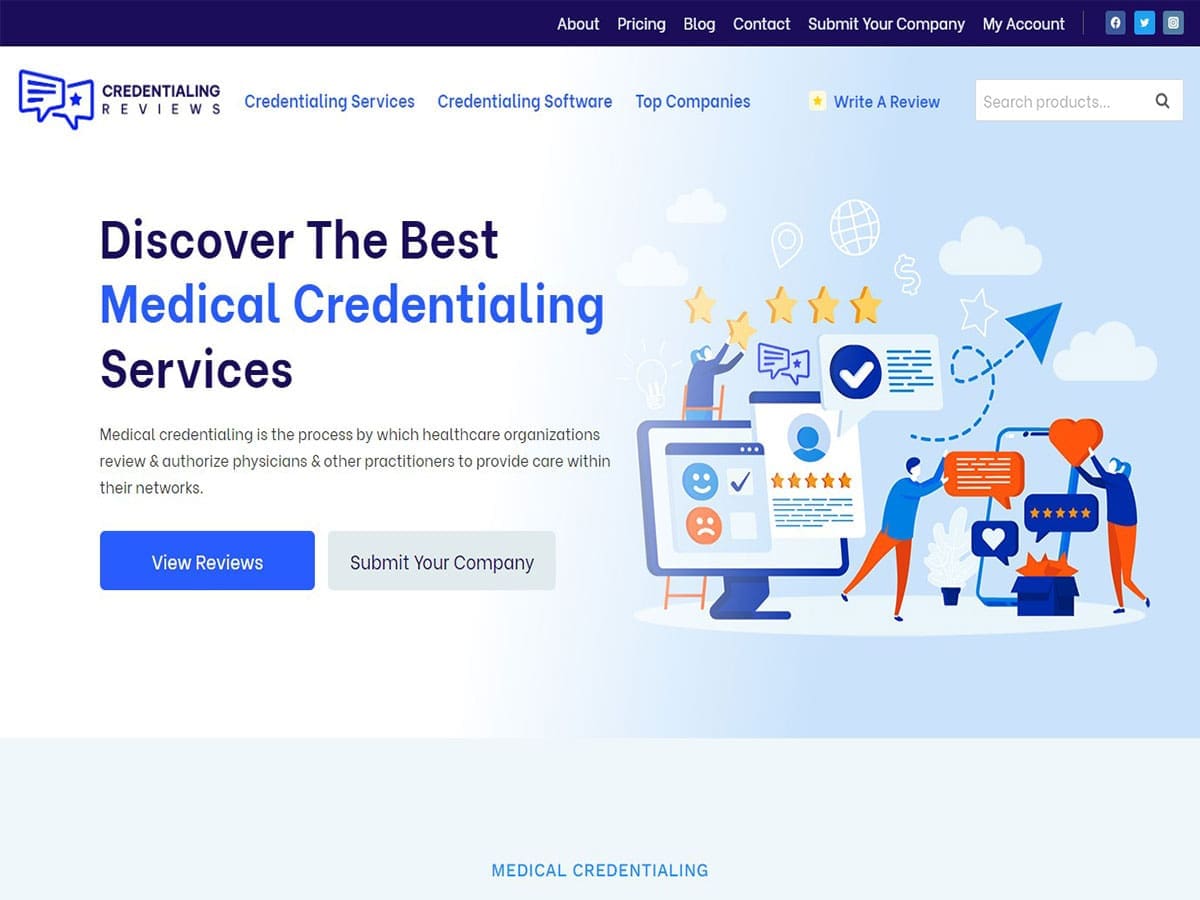The Importance of Selecting the Right Credentialing Software
In the fast-paced world of healthcare, efficiency and accuracy are paramount. Credentialing, the process of verifying the qualifications and backgrounds of medical professionals, is a critical function that ensures patient safety and regulatory compliance. Choosing the right credentialing software can significantly streamline this process, reduce errors, and enhance overall operational efficiency. Here, we will discuss why selecting the right credentialing software is vital and the key features to look for in a good credentialing platform. We will also touch on the importance of excellent customer service in this domain.
Why the Right Credentialing Software Matters
- Efficiency and Time Savings: Credentialing is a complex process involving the collection, verification, and organization of vast amounts of data. The right software can automate many of these tasks, saving time and reducing the administrative burden on staff.
- Accuracy and Compliance: Healthcare regulations are stringent and constantly evolving. Good credentialing software helps ensure that all necessary credentials are verified accurately and maintained up-to-date, thereby ensuring compliance with local, state, and federal regulations.
- Risk Management: Proper credentialing reduces the risk of employing unqualified or improperly credentialed practitioners, which can lead to legal issues and harm to patients. High-quality software minimizes this risk by providing thorough and reliable verification processes.
- Scalability: As healthcare organizations grow, their credentialing needs become more complex. A robust credentialing platform can scale with the organization, accommodating an increasing number of practitioners and more complex verification requirements.
Key Features of Good Credentialing Software
When selecting credentialing software, consider the following key features:
- Automated Primary Source Verification: The software should automatically verify credentials directly with the issuing bodies, reducing the need for manual intervention and minimizing errors.
- Comprehensive Database Management: A good platform should offer robust database management capabilities, allowing easy storage, retrieval, and updating of credentialing information.
- User-Friendly Interface: The software should be intuitive and easy to navigate, reducing the learning curve for new users and enhancing overall efficiency.
- Integration Capabilities: It should seamlessly integrate with other systems used by the organization, such as HR, payroll, and scheduling systems, to ensure smooth data flow and reduce redundancy.
- Customizable Workflows: Different organizations have unique credentialing processes. The software should allow customization of workflows to match the specific needs and policies of the organization.
- Compliance Tracking and Reporting: The platform should provide tools to track compliance with regulatory requirements and generate reports to demonstrate adherence to these standards.
- Security and Data Protection: Given the sensitive nature of credentialing information, the software must offer robust security features to protect data from unauthorized access and breaches.
The Importance of Excellent Customer Service
While the technical capabilities of credentialing software are crucial, the importance of excellent customer service cannot be overstated. Here’s why:
- Support and Training: Implementing new software often requires training and ongoing support. Excellent customer service ensures that your team can efficiently use the software and troubleshoot any issues that arise.
- Timely Assistance: Credentialing issues can halt the onboarding process of new practitioners. Quick and effective customer support helps resolve problems promptly, minimizing downtime and disruptions.
- Continuous Improvement: Customer service teams often relay user feedback to the software developers. A responsive customer service team ensures that your concerns and suggestions contribute to the continuous improvement of the software.
- Trust and Reliability: Good customer service builds trust in the software provider. Knowing that you can rely on prompt and knowledgeable assistance enhances overall satisfaction with the product.
Conclusion
Selecting the right credentialing software is a critical decision that can greatly impact the efficiency, accuracy, and compliance of your credentialing processes. By prioritizing key features such as automated verification, database management, user-friendly interfaces, and integration capabilities, you can choose a platform that meets your organization’s needs. Additionally, the importance of excellent customer service cannot be overlooked, as it ensures smooth implementation and ongoing support, contributing to the long-term success of your credentialing efforts.
By making a well-informed choice, healthcare organizations can streamline their credentialing processes, ensure regulatory compliance, and ultimately deliver better care to their patients.

